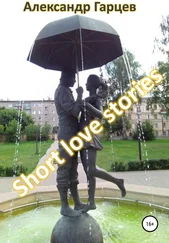I thought about Mrs. Wise. There was nowhere on the case forms to record the daily courage it took for her to face the daily threats of poverty. She was a grandmother who, despite her own ailments, was raising her mentally impaired fourteen-year-old granddaughter, Alma. Earlier in the year, Alma’s headaches had become so severe that she was rushed screaming to the emergency room. They thought it might be meningitis and were prepping Alma for a spinal tap when a festering red bean she’d inhaled into her sinus months before was discovered. The last time I’d visited, Alma looked pregnant. Mrs. Wise claimed it was just baby fat. She slid a steak knife from her sewing bag to cut the thread from the button on a blouse she was mending, ran a raspy, thimbled thumb along its blade, and told me that any man who laid a hand on Alma would get stuck like the pig he was, as would anyone who tried to take her away. She narrowed her eyes and added how from her windows she could see me hanging out at “that whorehouse hotel,” pretending I had clients to visit there.
“You ain’t fooling nobody, Mr. Cook County,” she said. “I seen a lot of your kind, poking your nose in on folks you don’t know nothing about, don’t care nothing about, never will know nothing about, and one day you ain’t here no more, moved on to something better, and there’s another fool come to give me his Mr. Cook County card, no damn different than the fool before knocking at the door like he knows something.”
I was the caseworker for that whorehouse hotel the DuSable—the Mighty Du, as it was known in the hood—eight floors of alcoholics and junkies on disability and prostitutes, mostly young women addicted to crack. There was a soul-food restaurant called Banks located in what had been the old Drexel Bank across the street, and the cops who ate there wondered how I could go into the Mighty Du unarmed. A week ago I’d found a package without a return address in my mailbox in Rogers Park. Inside was a small-caliber gun, its serial number filed off, and a box of bullets. I loaded the clip and instead of going to campus to run, I walked out late at night to the beacon at the end of the pier off Farewell, thinking I might test-fire a shot into the water. But when I got there, I didn’t want to ruin the silence. I imagined some stranger lying unable to sleep, who would hear the shot and wonder if there’d been a mugging, and if he should call 911. It had been enough to just once experience the petty power of what it felt like to walk around armed. I unloaded the clip and kept the gun hidden in a locked suitcase under my bed.
I thought of Felice Lavel, a mother on ADC—Aid to Dependent Children—whose daughter, Starla, had been diagnosed with leukemia. Felice was determined to get a college degree. The first time I visited her, I noticed books scattered around her apartment, a few romance novels, but also I Know Why the Caged Bird Sings , The Bluest Eye , The Autobiography of Malcolm X . She wanted to talk about them, and on the next visit I brought her Go Tell It on the Mountain , Invisible Man , and Bronzeville Boys and Girls , the anthology of poems for children by Gwendolyn Brooks, who was still alive then, still living on the South Side. I told Felice the book was for Starla. She thanked me and asked me to bring other books, especially my favorites, so we could discuss them.
“They all don’t have to be black,” she said.
Her dream was to go to law school. I helped her enroll at Martin Luther King College and got her part-time secretarial work at the office of a lawyer who did pro bono work with welfare recipients, but Felice quit to become a cocktail waitress. She wasn’t making enough yet to get off public aid, but she was trying. Visiting her apartment a few days earlier, I’d noticed immediately that the cracked plastic chairs and the wobbly table from a resale shop were gone, replaced by stylish furniture. The windows were open and new silky green drapes billowed into the room. Starla was in the children’s wing of County Hospital, but her bedroom was waiting for her, redone in shades of pink and complete with its own TV and a canopy bed presided over by an enormous black-spotted pink leopard.
“Okay, Jack, you’re wondering where the money came from,” Felice said. “You been straight with me. I ain’t going to lie to your face. I’m doing a little tricking on the side. Only connected clients. You’re not going to report me and mess up Starla’s medical, I know.”
I could have said, I wish you hadn’t told me; or, Be careful, Felice, prostitution is more dangerous than commercial fishing; or, Have you thought about what will happen to Starla if something happens to you? I said nothing.
“So?” Felice asked.
“So, you’re taking too many chances. You just took a chance telling me. You know that saying we talked about? ‘Chance favors the prepared mind.’ Well, it works in reverse, too, when it comes to bad luck. What if you’d guessed wrong and I said I’m going to report you, like I’m supposed to?”
“Then I’d say, I know you think I’m pretty, Jack. I’d do you pro bono.”
I closed the folder in which I was supposed to be making notes for the “Living Arrangements” section of the case report I was required to submit to document the visit. “Good luck, Felice,” I said.
“Let me ask you something ’fore you go. If … when I get off welfare and you’re not my worker anymore, would you ever think to give me a call, you know, keep in touch, talk books, get a drink or something?”
“Maybe,” I said, knowing it was the easy-out answer.
“Maybe, huh? Maybe you might do something crazy like have a cup of coffee, huh?”
“Get off welfare and I’ll buy lunch to celebrate.”
“Thanks, Jack, I’d like that.”
* * *
One becalmed night when I swam as far as I safely could, still keeping something in reserve for swimming back, I saw, along a streak of moonlight paved like a path on the black surface of water, a body floating farther out. I knew it had to be an optical illusion, only a log, probably, but when fish began to jump around it—I’d never seen fish jumping at night until then—I had the eerie sense they were feeding. I swam along the path of moonlight toward it, but it moved away, farther out, as if swimming, too, inviting me to follow. I was breathing from exertion when I’d spotted it and could hear the sound of my breath echoing over the lake; at least, I thought the sound was mine, but when I held my breath I still heard the resonance of someone breathing. I swam keeping my eyes on whatever it was, sure I was gaining, until as I drew closer it widened the gap between us again. When the thought came to mind that it was the priest, I gave up. It was a ludicrous thought, crazy. Plus I’d never catch him.
Each night I would swim out farther and then, treading water, turn and gaze at the distant Gold Coast, a lustrous veneer behind which the apartheid of slums wasn’t even a shadow. If a power outage suddenly plunged the city into darkness, I would be confused as to the direction of shore. The imaginary fear of that happening would get me swimming back.
On the night of the seiche, the campus was deserted; but then, it was deserted most nights. I climbed to the flat roof of the shed, looked out over the oily oscillation of moonlight, and waited, senses cocked, listening for the least change to the rhythmic sloshing from the pebble beach below. It was the beach I had imagined the priest had swum from each morning.
All I knew about a seiche was what I’d read in the paper. It could swell without warning as if the basin of the lake had suddenly tilted, causing water to rush over the shore in biblical proportions. I estimated the shed roof was well above ten feet, but still wondered if I was doing something really stupid. The roof gave me a clear view of Madonna della Strada, whose doorstep began at the lake. Before I learned it meant Our Lady of the Way, I had thought its name translated to Our Lady of the Streets, which sounded to me like a Virgin to whom whores might pray. I’d certainly have been safer watching from the steeple. From my perch on the roof, I could look into the side doorway of the church where, in late March of my senior year, Nisa and I had huddled out of the wind, locally called the Hawk, slashing off the lake. She’d wrapped her long crimson scarf around us. Her dark hair kept blowing into our mouths until I gathered it in an ungloved hand and gripped it as if to steady us as we kissed. We held each kiss and without stopping kissed again. I could feel the warmth of her mouth traveling the length of my body. I slid my hand between the buttons of her coat and brushed her breast and she moaned into my mouth and, with one hand holding her hair and the other cupping her breast, I backed her against the marble portal and pressed against her and she opened her coat so our bodies could touch and pressed back while wind swirled her scarf and our tongues stabbed together. We thought we were alone, hidden in the doorway, but when finally I released her hair and we pulled apart, we were greeted by an enormous cheer. The church doorway faced the dormitory at Mundelein, a Catholic women’s college, and the Mundelbundles, as we called the students there, lined their dorm windows cheering and applauding.
Читать дальше












